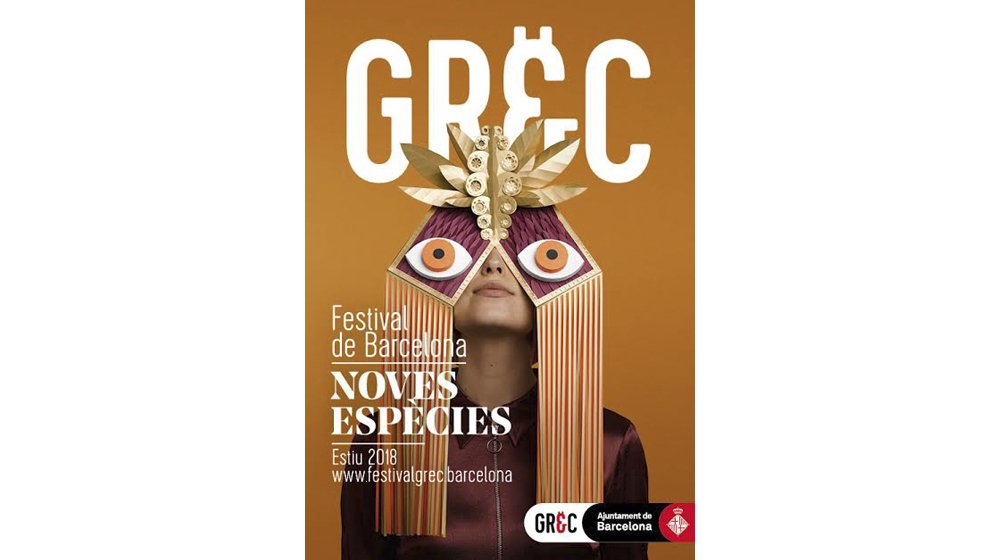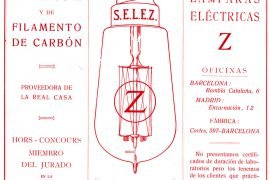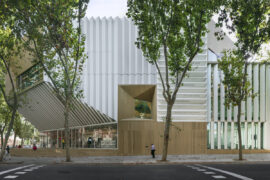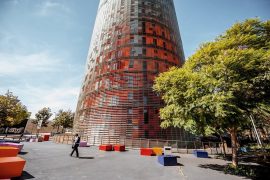[dropcap letter=”F”]
or Barcelona’s theatre-goers, summer does not begin until they go up to the Teatre Grec to witness a performance. Either at the opening of the festival, with the crème de la crème of the invitation-extracting class, or at one of the many concerts or recitals that take place every July. The starting gun for the summer season of our cultured class is not the Estrella beer full-length feature commercial on TV, but the first beer—seriously overpriced—in the gardens on Montjuïc. To get there, you will have to climb the stairs up from the Passeig de la Santa Madrona, all the while scenting the fragrance of mown grass and jasmine, and once at the rose-garden, you will take the typical selfie with the city in the background because, as with Caesar’s wife, moderns must not only be, they must be seen to be, and broadcast it to the winds. No matter that the garden is also open the rest of the year: during eleven months, this place will only be inhabited by runners and locals walking the dog, only to be filled again the following summer by hipsters and songs to the muses.
They say that the building of the Teatre Grec was the idea of French landscaper Jean-Claude Nicolas Forestier, who while strolling on Montjuïc when it was being landscaped for the great International Exhibition, saw the rocky crater, like a cave, which had been left behind by the Machinet quarry. “This would be an ideal place to set a theatre,” they say he said, and so no sooner said than done: after a few trips to Greece to take measurements, the largest open-air amphitheatre in Catalonia was inaugurated in 1929 with the poetic recital of a woman, Josefina Tàpies. Then, carrying on with female voices, the Grec opened in 1932 with the great Margarida Xirgu’s Electra, and in 1960, after the Spanish Civil War, 21-year-old Núria Espert performed the most controversial Hamlet in our history, with cries from the audience of blasphemy that her playing a man meant, shouting down her first verses; but she went on with the performance through to a justly acclaimed “To Be or Not To Be.”
The first edition of the Festival Grec was also acclaimed—and that’s 42 so far!—begun in 1976 by the independent Assemblea d’Actors i Directors, the Assembly of Actors and Directors, with the courageous determination to perform works banned under the dictatorship. On opening night however, the inspectors of the “Political-Social Brigade” secret police turned up and several organizers spent the night at the police station. Then, getting on for August, the newspapers filled with letters from outraged readers denouncing that “for two months we have had to bear clearly separatist-tainted singers” and shows that “attempt to undermine the foundations of religion and the unity of the peoples of Spain.”
Today El Grec is a consolidated festival: mayors of Barcelona of all hues have come and gone, we have seen Romeo Castellucci’s mountaineering actors climbing the quarry into the heavens, and other performances that have extended beyond the amphitheatre, like Calixto Bieito and Joel Joan’s historical Peer Gynt where the play continued in the gardens during the interlude. In fact, once at the Grec, all your worldly problems are of no importance: no matter whether your kids have failed all their exams, or if the air conditioning at work has broken down. Once you get to the amphitheatre and the lights go out, it’s you and two thousand others, anticipative and with bated breath, ready for the first actor to appear on stage, and the magic of the theatre begins once again.





















